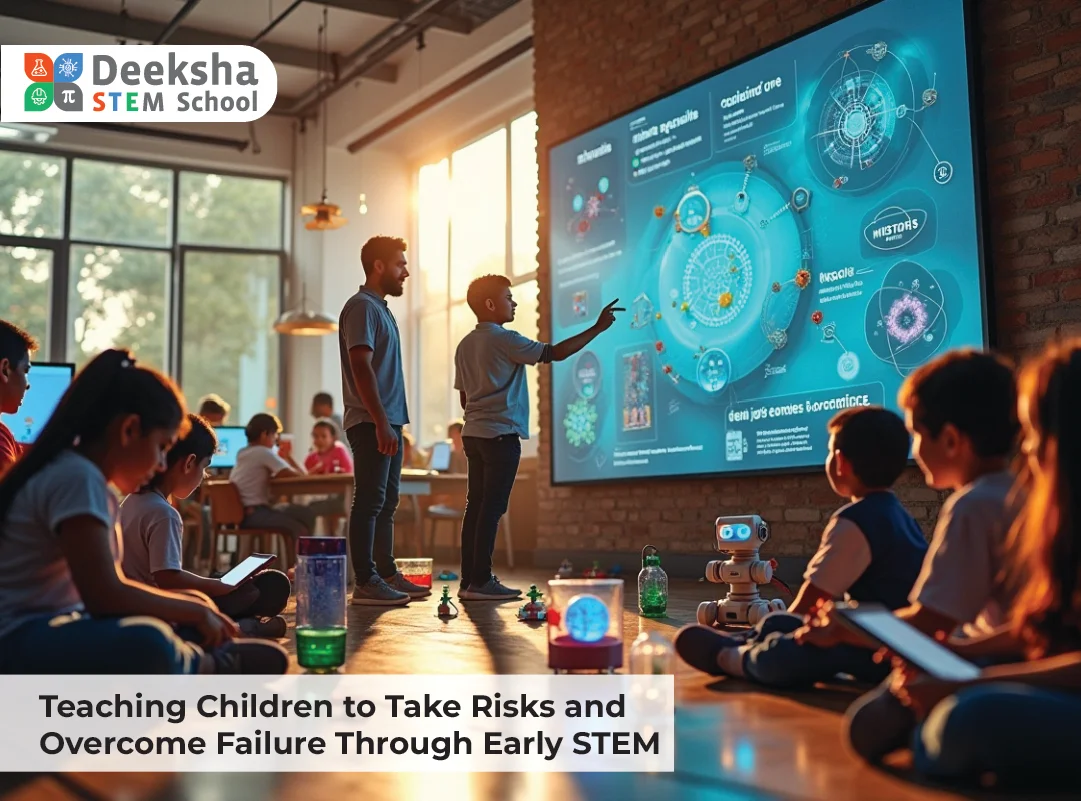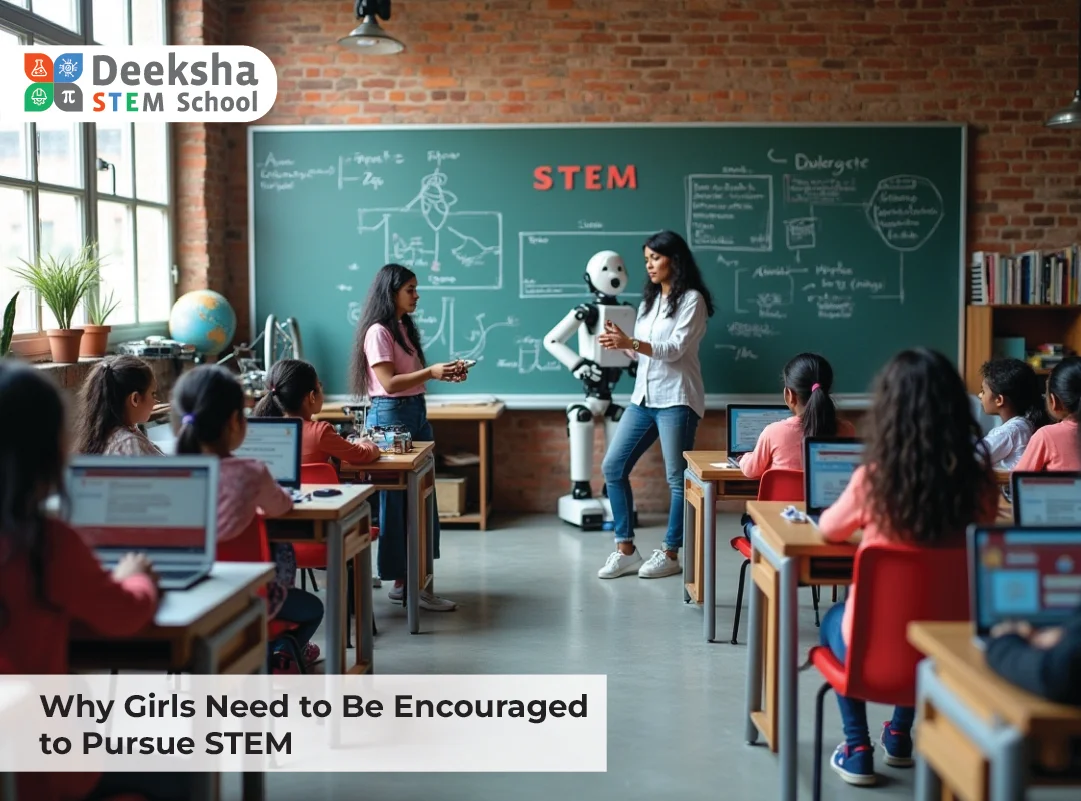Teaching Children to Take Risks and Overcome Failure Through Early STEM

Failure is not the end—it’s a stepping stone to innovation and growth. Teaching children to take calculated risks and embrace failure is an essential life skill, and early STEM education provides the perfect platform for this. By engaging in STEM activities, children learn to experiment, persevere, and develop resilience. These lessons go beyond academics, shaping how they face challenges in all areas of life.
The Importance of Risk-Taking and Resilience
Building Confidence Through Experimentation
STEM encourages children to try new things without fear of failure. Whether designing a robot or solving a complex math problem, students learn that every attempt brings them closer to success. By building their confidence, they begin to see failure not as a setback but as a learning opportunity that fosters growth.
Learning from Mistakes
In STEM, mistakes are viewed as opportunities for improvement. For example, when a coding project doesn’t work as planned, students analyze errors and refine their approach, fostering critical thinking. This iterative process mirrors real-world problem-solving and helps children develop patience and determination.
Developing a Growth Mindset
Risk-taking in STEM nurtures a growth mindset, where students understand that abilities can be developed through effort and learning. This mindset encourages children to take on new challenges, even if the outcome is uncertain, knowing that they can grow and improve with practice.
How Early STEM Nurtures Risk-Taking and Resilience
Hands-On Problem Solving
STEM projects often involve trial and error, such as building a bridge from limited materials or programming a robot to navigate an obstacle course. These activities teach children to persist despite setbacks. Over time, they develop strategies for overcoming obstacles, boosting their ability to tackle complex problems with confidence.
Encouraging Creativity and Innovation
By experimenting with different solutions, children develop innovative thinking. STEM activities like designing a simple wind turbine or creating an app prototype allow students to take risks and discover creative approaches to real-world problems. This process builds their ability to think outside the box and approach challenges with fresh perspectives.
Celebrating Small Wins
Early STEM education emphasizes incremental progress. Completing small tasks builds confidence and motivates children to tackle bigger challenges. Each small success serves as a milestone, reinforcing the value of effort and persistence while encouraging them to set higher goals.
Developing Teamwork Skills
STEM projects often require collaboration, teaching children to work effectively in teams. By sharing ideas, solving problems together, and dividing tasks, students learn to navigate group dynamics while achieving shared objectives. These skills are essential for future professional and personal success.
How Deeksha STEM Schools Foster Risk-Taking and Resilience
Supportive Learning Environment
Deeksha STEM Schools provide a safe space where students can explore, make mistakes, and try again without judgment. This environment encourages students to push their boundaries and embrace challenges with confidence.
Project-Based Learning
Students engage in hands-on projects like building prototypes or testing scientific hypotheses, which naturally involve trial and error. These projects are designed to simulate real-world scenarios, giving students practical experience in tackling challenges and refining their solutions.
Mentorship and Guidance
Trained educators guide students through challenges, teaching them how to approach problems systematically and remain resilient in the face of difficulties. Through personalized mentorship, students learn to break down complex tasks into manageable steps and maintain focus despite setbacks.
Exposure to Real-World Applications
At Deeksha STEM Schools, students participate in activities that connect classroom learning to real-world applications. For instance, they might collaborate on sustainability projects like designing energy-efficient models or exploring innovative recycling techniques. These experiences help them see the relevance of their efforts and inspire them to take on meaningful challenges.
Conclusion
Early STEM education is a powerful tool for teaching children to take risks and overcome failure. By developing resilience, creativity, and problem-solving skills, STEM prepares students to face future challenges with confidence. These qualities are not just valuable in academic or career settings but are life skills that empower students to navigate uncertainty and adversity.
At Deeksha STEM Schools, we are committed to nurturing these qualities through innovative programs and a supportive environment. By fostering a growth mindset, encouraging experimentation, and celebrating effort, we ensure that students are well-equipped for a future of limitless possibilities. Enroll today to empower your child with the tools they need to succeed in an ever-changing world.




